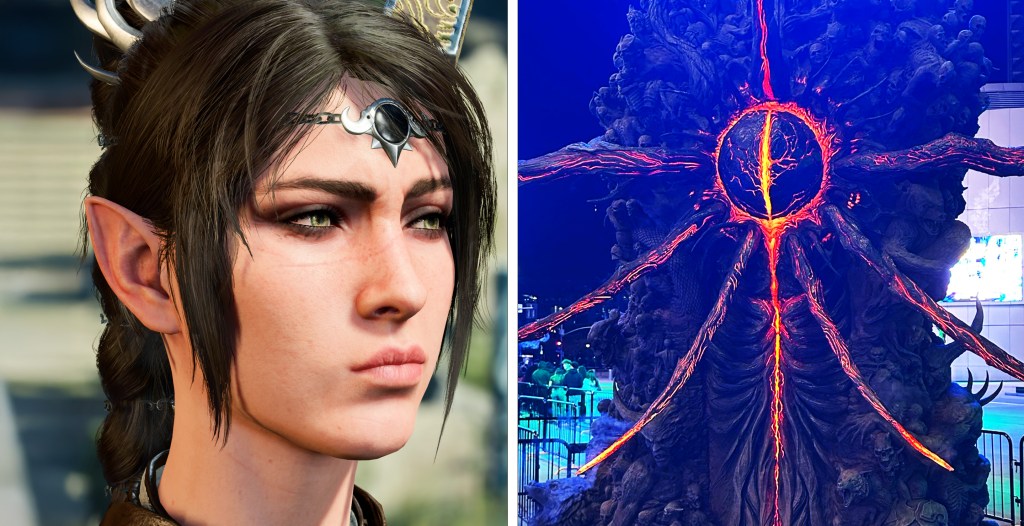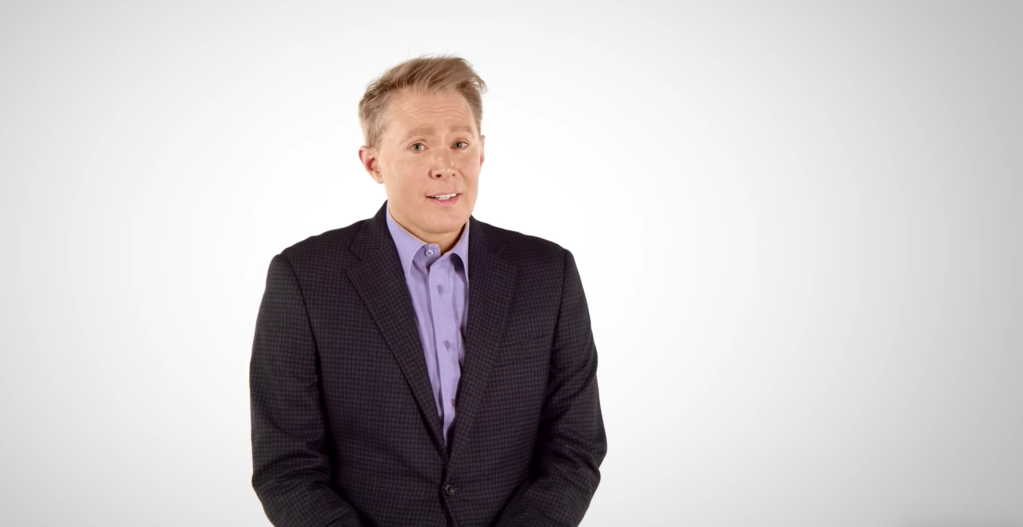In a turn of events that feels like a Mad Lib I might’ve written in 2004, Clay Aiken is running for Congress. Aiken, whose boyish charm and angelic pipes carried him to a second-place finish on American Idol in 2003, announced on Monday that he’s vying for a House seat in North Carolina’s 6th congressional district, which covers most of Raleigh, Durham, and Chapel Hill. It’s about as blue as a district can be, meaning that if Aiken wins the Democratic primary in May, he’s all but guaranteed a spot in the House.
But getting there won’t be easy. Seven other candidates have already thrown their hats into the ring, including Valerie Foushee, a State Senator who has represented folks in the area for about a decade, and Nida Allam, an outspoken progressive who became the first Muslim woman ever elected to public office in North Carolina when she won her bid for Durham County Commissioner in 2020. While Aiken boasts some notable accomplishments of his own—releasing six albums, narrowly losing Celebrity Apprentice to Arsenio Hall in 2012, and performing on Broadway once—he’s never actually worked in government.
Videos by VICE
This isn’t his first attempt to, though: In 2014, he ran for a House seat in a different North Carolina district, winning the primary before losing to his Republican challenger. In the wake of that defeat, he recently told Variety, he pretty much gave up on a career in politics. But after watching noted shitbag Madison Cawthorn rise to prominence in the House over the past two years and listening to North Carolina’s Lieutenant Governor go on a baldly homophobic rant in November, he felt compelled to get back in the mix. If he were elected, Aiken, who lives in the district he’s hoping to represent, would be the first openly gay member of Congress from the South.
To get a sense of whether that could happen, I called up Douglas Wilson, a longtime political strategist in North Carolina who’s worked on campaigns for Barack Obama, Joe Biden, and several local Democratic politicians. He weighed in on Aiken’s chances of coming out on top in the primary, what he’d have to do to stand out in a crowded field of competitors, and how hard Aiken should lean into the whole American Idol thing. (Short answer: Less hard than he is right now.)
VICE: Do you think Clay Aiken has a legitimate chance of winning the primary?
Douglas Wilson: Because there are eight Democrats in the race, I think that he will have to raise a considerable amount of money to be competitive. I don’t know if he has a shot. You have two strong women of color running right now: You have a candidate in Senator Valerie Foushee who has represented the Orange County area for a number of years in the State Senate, has name recognition in the district, and has support among a lot of the leaders in the district. And then you have County Commissioner Nida Allam out of Durham, who’s getting a lot of name recognition nationally and is raising a lot of money. She’s 27, so you have the younger generation there. And then you have State Senator Wiley Nickel, who used to work for President Barack Obama. Clay would have to overcome all of that to have a good shot. Having two women of color in that race is a strong driver for the base and for folks on the ground there. It’s going to be interesting to see, though.
Could you speak a little bit more on how Aiken stacks up to his opponents?
If you look at Senator Foushee, she’s an African-American woman, she’s been in the Senate for a number of years, she has a lot of respect from Democrats all across the state, and she has worked on legislation while she’s been in the Senate. Aiken’s social media following is large, and I think he will be able to raise money to compete. But I still think in the end, [Foushee] has the edge. One thing about North Carolina politics is that it’s about who you have on the ground that’s supporting you to get the vote out. You can have everything coming in from across the state or nationally, but if you don’t have the folks on the ground that know how to get the vote out for you, or the endorsements that are needed, then you will have a harder chance of winning.
With Aiken and Commissioner Nida Allam, you have two young candidates going at each other, two candidates that will have name recognition on social media. Nida is raising a ton of money and has gotten endorsements from Congresswoman [Ilhan] Omar and others. Again, I think she would have the upper hand because of her recognition on the ground and the money that she’s raising.
With Senator Nickel, I think it may be a little bit tight. Senator Nickel has been in the Senate for a while. I think Clay is maybe a bit more exciting.
All in all, it sounds like Aiken is going to be an underdog in this primary.
Yeah, I think he is coming in as an underdog. The other candidates have been in the district and can say, “Hey, I passed legislation to fight for this, this, and that. I voted for COVID relief. I helped block voter restriction laws that were coming down.” Also, David Price announced he was retiring in October. [Ed. note: Price’s soon-to-be-vacated seat is what’s now up for grabs.] We’ve already had candidates running for a while. Clay is just coming in now, and he has a lot of work to do. These candidates have been raising money for the past three to four months. They have gotten endorsements already from a lot of folks. They’ve been able to connect with voters, either in person or virtually.
It is January 11. The primary is, as of right now, May 17. If you’re just getting into the race now, you have to make sure you can raise enough funds; you have to get your yard signs, mailers, and campaign literature; you have to recruit volunteers that can help you pass out your literature at key polling sites; you need to get a mailing firm that can help you do direct mail to voters who voted in the last election; and oh, by the way, you have your PACs that are already doing endorsements. One of the most prominent PACs in this area is the Durham Committee on the Affairs of Black People. You’re going to have to go to them and interview and compete with the other candidates to get their endorsement. Their endorsement, along with the People’s Alliance in Durham, is very, very important. So that’s why I say he’s the underdog. It’s a crowded field. The primary is in four months. And you have other candidates in the field that would be history-makers in their own right, too. To be the first LGBTQ congress member from North Carolina would be huge. But when you have two women of color running, and they are strong, it’s going to be tough.
Clay Aiken is a celebrity but not an A-lister. I just wonder if the level of celebrity and name-recognition he has is going to meaningfully help him, here.
I think it will help when it comes to raising money. But American Idol is not at the same iconic status it was 20 years ago. If he was, say, a well-known Academy Award-winning actor—like, a Denzel Washington—that’s different. And I’m not trying to downplay his achievements. But it’s just that American Idol is not at that iconic level it once was. So I don’t think his celebrity is going to give him a leg up. I think what would help him is if he can push the fact that he would be the first LGBTQ member of Congress from either Carolina. I think that’s where his strength will come, and I think that will also aid him when it comes to fundraising.
From a branding perspective, Aiken is really embracing the whole American Idol thing. His logo has a microphone in it, his slogan is “a voice for North Carolina,” he talks about American Idol in his ad and makes a number of singing jokes and puns in it. What do you think about that choice?
I don’t feel that he should have leaned so hard into it. Voters want to see candidates that are talking about the issues that they care about right now. One thing I’ve learned working on campaigns, particularly from the Obama campaign, is that we have to tell the story of: This is who I am. He started off doing that, but then he stayed too long on, “I’m the American Idol guy.”
If Clay Aiken asked you to consult on his campaign, what advice would you give him?
I would tell him that your message has to be, “I want to be your North Carolina voice.” Focus solely on the issues that everyday voters are thinking about. That’s prices of food and gas, that’s COVID, that’s their children going to school, and their fear of the future. They just want you to work on policies that will directly affect what they’re going through right now. I would tell him to focus on that, and if he can focus on that, he could win. Run a campaign that North Carolinians can recognize and believe in. That’s how he should frame his whole narrative. Don’t nationalize the campaign, although you’re running for a federal seat. If all you’re talking about is Madison Cawthorn and January 6—yes, January 6 is very important, and we’ll talk about that. But voters will tune you out if that’s all you’re talking about. They want you to focus on their everyday issues.
Aiken has about 200,000 followers on Twitter and about 150,000 on Instagram. His opponents have follower counts on those platforms in the low thousands. Do you think that gives him an edge?
Social media for candidates is just an accessory. Yes, having a large social media following is great. But are you able to go deep into these counties, to the precinct level, and pull voters out to go to the church down the street and cast their vote for you? You have to have resources to do that.
At the end of the day, do you think it’s a good or a bad thing that he’s entering the race?
It is good for the party in that it shows the vast diversity the party has: You have an African-American woman running, you have a Muslim-American woman running, you have an LGBTQ man that’s running, and you have an African-American man running. All of those candidates, if they were to win, would be able to make history in the state.
Follow Drew Schwartz on Twitter.
More
From VICE
-

Screenshot: Larian, X @shinobi602 -

Gene Siskel and Roger Ebert (Photo by Norm Staples/Getty Images) -

One of the finalists, "Now Which Direction Is My Nest?" (Credit: Alison Tuck) -

Credit: Google
